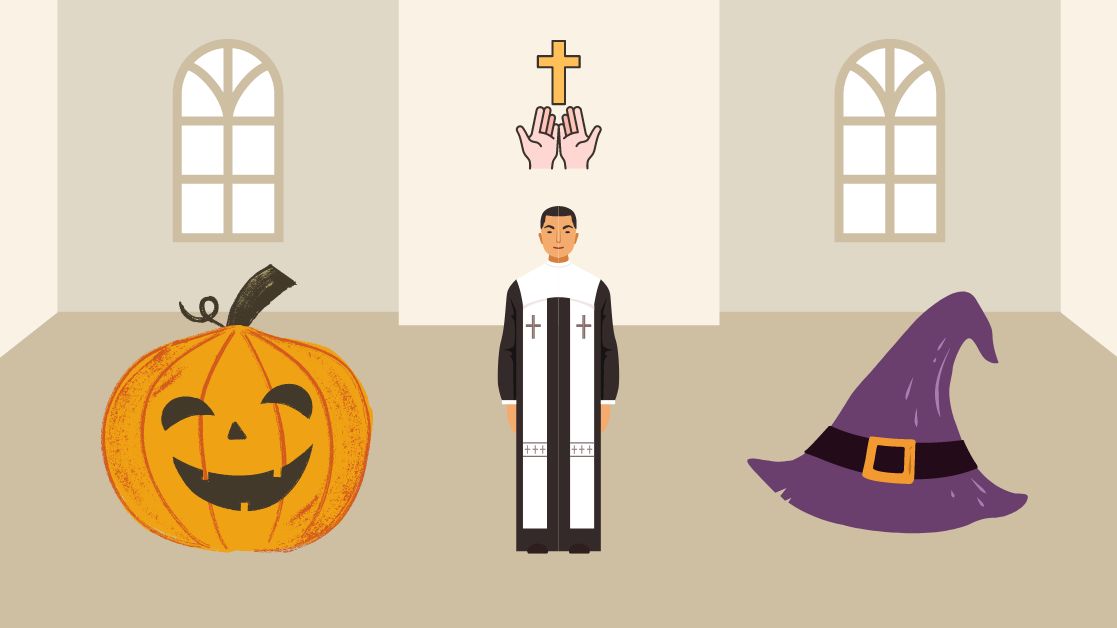Most Christians think engaging in Halloween celebrations is associated with actions considered futile and connected to wickedness and obscurity. But what does Halloween mean in the Bible? Is it a Sin to celebrate or engage in this celebration? We will find out more about this in this article.
Where Did Halloween Originate?
It is important to recognize that Halloween predominantly originates from Western customs and does not possess direct biblical references.
Nonetheless, several biblical principles directly pertain to the observance of Halloween. Exploring Halloween’s historical background and significance is beneficial to understand the connection between Halloween and the Bible.
Halloween derives its name from “All Hallows’ Evening,” it is the eve before the observance of All Hallows Day, also known as All Saints’ Day, celebrated on November 1st.
The word Halloween is a shortened version of various terms such as Allhalloween, All Hallows’ Evening, and All Saints’ Eve, which are observed on October 31st. While the historical origins of Halloween can be traced back to ancient Celtic harvest festivals, in modern times, Halloween has become associated with elements like candy, trick-or-treating, pumpkins, and themes of ghosts and mortality.
What Does The Bible Say About Halloween?
The Bible does not make specific references to Halloween, as it is a relatively modern celebration. However, various biblical principles can help us understand how to approach this holiday. One such principle is found in 1 Corinthians 10:31. This verse encourages believers to evaluate their actions and motives in light of honoring God.
In Philippians 4:8, the apostle Paul encourages believers to focus on things that are true, noble, just, pure, lovely, of good report, virtuous, and praiseworthy. This verse urges Christians to contemplate and meditate on things that uplift and honor God. Applying this principle to Halloween prompts individuals to consider whether the holiday aligns with these qualities.
In its contemporary form, Halloween often evokes imagery and themes related to fear, darkness, and supernatural elements. Evaluating whether these associations are consistent with biblical principles of peace, freedom, and salvation is crucial. If the holiday predominantly brings about feelings of fear, oppression, or bondage, it may be worth reconsidering its significance.
Moreover, the Bible explicitly condemns practices such as witchcraft, sorcery, soothsaying, and any form of occultism. Leviticus 20:27 states that those who engage in witchcraft and similar activities should be put to death. Deuteronomy 18:9-13 warns against following the abominations of the nations and participating in witchcraft, divination, interpreting omens, sorcery, conjuring spells, consulting mediums or spiritists, and communicating with the dead. The Bible considers these practices detestable to the Lord.
As Christians seek to align their beliefs and actions with biblical principles, they are encouraged to avoid any involvement in witchcraft, sorcery, and occult practices. While Halloween may contain elements associated with these practices, individual believers should exercise discernment and choose to focus on activities and celebrations that uphold the values and teachings of the Bible.
Bottom Line
While the Bible does not directly mention Halloween, it provides valuable guidance for Christians when considering the celebration and associated practices.
Each believer may have different convictions and perspectives regarding Halloween. Some may choose to abstain from any involvement, while others may engage in cultural aspects while avoiding activities associated with the occult. The important thing is to make decisions that honor God, align with biblical principles, and promote a positive and beneficial atmosphere.
As we navigate the celebration of Halloween, let us seek wisdom, prayerfully consider our convictions, and maintain a focus on Christ-centered values. By doing so, we can engage with the holiday in a manner that reflects our faith, brings glory to God, and maintains the integrity of our relationship with Him.




